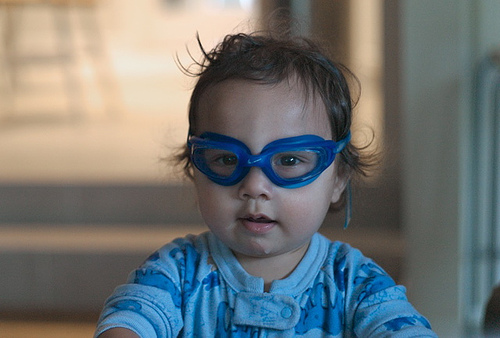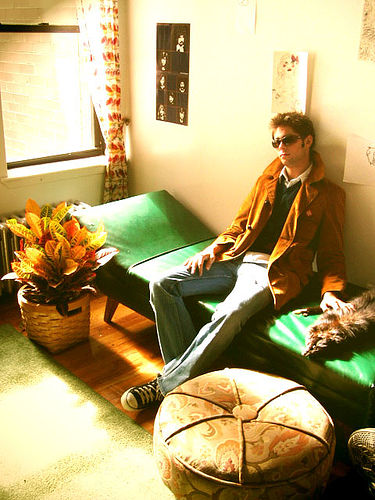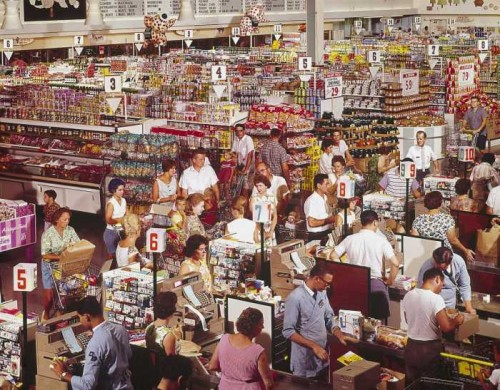
I don’t have kids but got to peer in the lives of parents with cancer when I was doing interviews for my book Everything Changes. I believe that cancer is a totally different disease for people who are parents and think there should be a new staging system to reflect this monumental difference: Cancer Stages I - IV NK (no kids) and Stages I - IV P (parent).
Jen Singer is the creator of MommaSaid.net, the moderator of the Parenting with Cancer boards at Planet Cancer, and the author of four parenting books including Stop Second Guessing Yourself—The Toddler Years (HCI 2009). I asked her to write a guest post about life during treatment as a mom of three. Take it away Jen:
“When I found my son’s swim goggles in our mailbox, I took it as a sign that I was no longer in charge. How could I be? That summer, I was undergoing chemotherapy for stage 3 non Hodgkin’s lymphoma (and, oh yeah, my house was undergoing renovations…). So I didn’t have the energy to drive my kids to swim team practice. In fact, I missed most of their swim meets and much of June, which I spent in the hospital, sharing a room with an 84 year-old leukemia patient, who was dying. I missed being the kind of hands-on mom I’d always been. But most of all, I missed my kids.
I learned a lot of things that summer, like how to tie a headscarf and what time The Daily Show repeats come on during the day. But most of all, I learned how to let go. It was the best thing for me, and for my kids.
While some nice folks took it upon themselves to turn my mailbox into a Lost and Found, my neighbor, Susan, organized the community to cook for us three times a week. Another neighbor, Kim, set up a schedule for friends to carpool my kids to various activities and playdates, which she arranged for me. My job was simply to sit on the couch and wave good-bye – if I was even awake. Everything else was pretty much handled by everyone but me.
The sicker I felt, the easier it was to let friends and family take care of my kids. I’d much rather that my children spend the afternoon swimming with their buddies than watching me doze off or witnessing me drop to the floor in excruciating pain, a side effect of the white blood cell-boosting shots I received after each chemo session.
But when school started in the fall, not being in charge was harder for us all to take. I had to ask my husband to fill out the first-day paperwork, because I was simply too exhausted. I brought my mother and a teen from down the street to help me coach a soccer game, because the radiation treatments had weakened my voice. And when I went to Back-to-School night, several neighbors didn’t even recognize me and my puffy-from-steroids, eyelash-less face.
For the first school year ever, I wasn’t Jen Singer, class mom. I was Jen Singer, cancer patient. And that was hard on all of us, especially my kids.
But once my treatments ended and my energy (and my hair) began a glorious return, I started to pick up where I’d left off. By the time I found out I was in remission (and still am), I was slowly becoming the hands-on mom I used to be.
Now two years later, I am in charge of the kids – and the swim goggles – again. But I’ll never forget the generosity our neighbors extended to me the summer that I had cancer. I may have lost the ability to parent the way I wanted to, but I found something so much more important in the mailbox and beyond.”
When you were parenting with cancer, what was it like to let go of control of the day to day life of raising your kids? If you are post-treatment, or in remission, do you feel like having had cancer has changed the way you parent?
For more stories, advice, and resources on parenting with cancer, check out my book Everything Changes: The Insider’s Guide to Cancer in Your 20s and 30s.
![]()
![]()


 “Everything Changes is, without doubt, the most forthright, emotionally sophisticated, and plain-old valuable book of its kind I've seen.”
“Everything Changes is, without doubt, the most forthright, emotionally sophisticated, and plain-old valuable book of its kind I've seen.”












